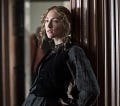Jo March. Anne Shirley. Jane Eyre. Elizabeth Bennet. These women have been my literary heroines since girlhood. They have large imaginations and fierce intelligence; their humanity is funny and relatable. I see myself or who I wanted to be in their longings and failures, loves and ambitions.
In Jo, I see a fellow writer who pursues her work with commitment and who isn’t afraid to be herself. In Anne, I find a kindred spirit whose inner world is often more pressing and real than her surroundings. I admire the quiet strength of Jane’s convictions and sense of self, unbending in the face of social and economic inequalities. In Elizabeth, I discover a woman of sharp wit who meets the limits of her society with a keen eye and a laugh.
The most contemporary of these works, Anne of Green Gables, was published in 1908. Over 100 years later, modern women in the countries where Anne, Jo, Elizabeth, and Jane were born are living in a very different world. We’ve had a revolution of legal and social reforms for women since, as well as many technological innovations—most notably the invention of the Pill.
Yet these characters offer rich, imaginative explorations into being female that still inspire lively discussion (and hours of engrossed reading) for girls and women today. The themes they bring to life remain resonant and relevant: equality, economics, respect, self-discovery, female personhood and agency, love, sacrifice, ambition, and different modes of being within or in opposition to one’s surroundings.
What about modern equivalents to these heavy hitters? Of those with widespread, sustained popularity, Hermione Granger (Harry Potter), Katniss Everdeen (Hunger Games), and Meg Murry (A Wrinkle In Time) immediately come to mind.
This is by no means an exhaustive list, but I find it interesting that very often, when reaching for well-known heroines, the canon is filled with fantasy realms and period settings.
Thankfully, we’re seeing a push for more stories with significant female characters in books and on screen. And this includes a greater diversity in the types of stories we tell about women.
That kind of push is needed. For instance, every one of the famous heroines I’ve listed above is Caucasian, with the exception of Katniss (as described in the books, at least).
I’m excited to see what a shift toward more diverse points of view will bring to the literary scene, as we settle into it. Right now, I think we’re figuring out how to get past stifling self-consciousness, perhaps due to over-political correctness and cancel culture.
I can’t wait to discover more contemporary female characters with substance and depth equaling those of my girlhood favourites. I’m eager for more stories about women in all their contradictions and complexities who are born of the questions and concerns of this point in time.
“The stories people tell have a way of taking care of them.”
A dear writer friend recently read this quote to me, an excerpt from Crow and Weasel by Barry Lopez.
There’s a deep trueness to these words. The stories inside us carry wisdom that can care for our tender, unformed questions and desires. And when we receive stories from others, they too can bring meaning and hope. Like telling a shy girl who liked to daydream but was afraid of the real world that there was a place for her too, and that she would one day find it.
I’m so thankful for the many writers whose stories take care of me, and I’m excited to see what new ones will arise in the coming years, helping new generations of girls feel understood.
Who are your beloved heroines or heroes? What stories know you so well you return to them even into adulthood? Feel free to share in the comments!




Brilliant, you. We share many heroines:)
I've always loved The Shephard of the Hills by Harold Bell Wright.